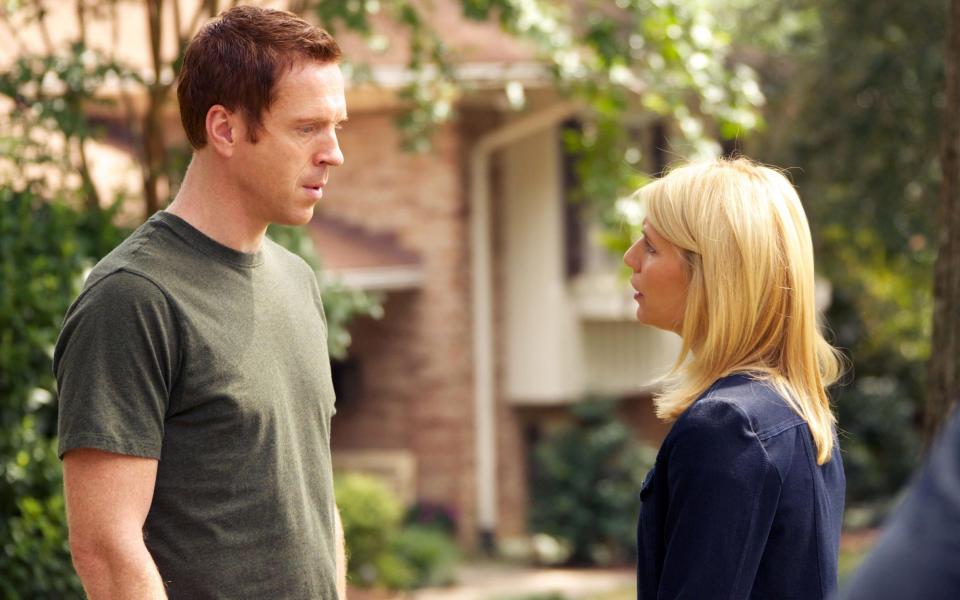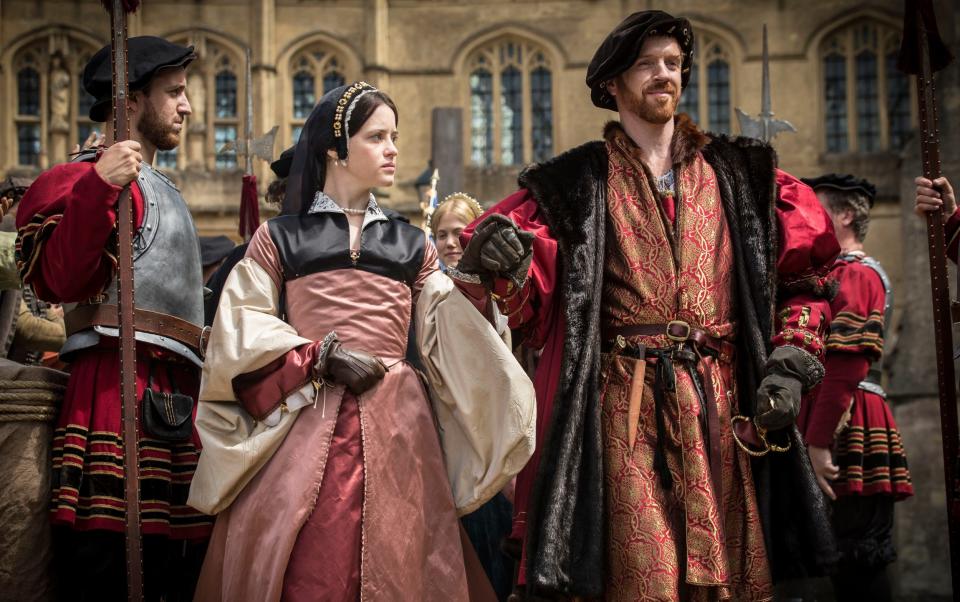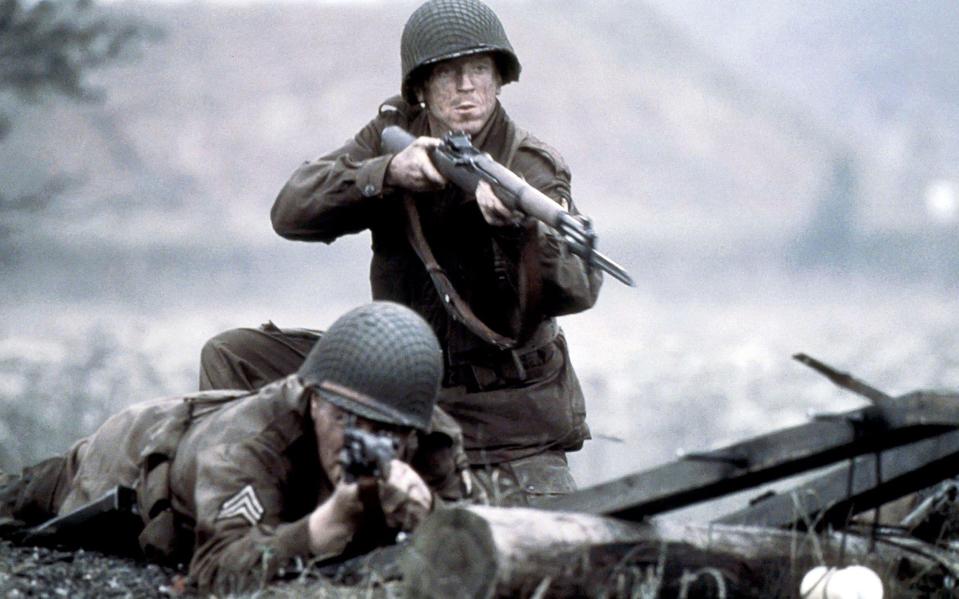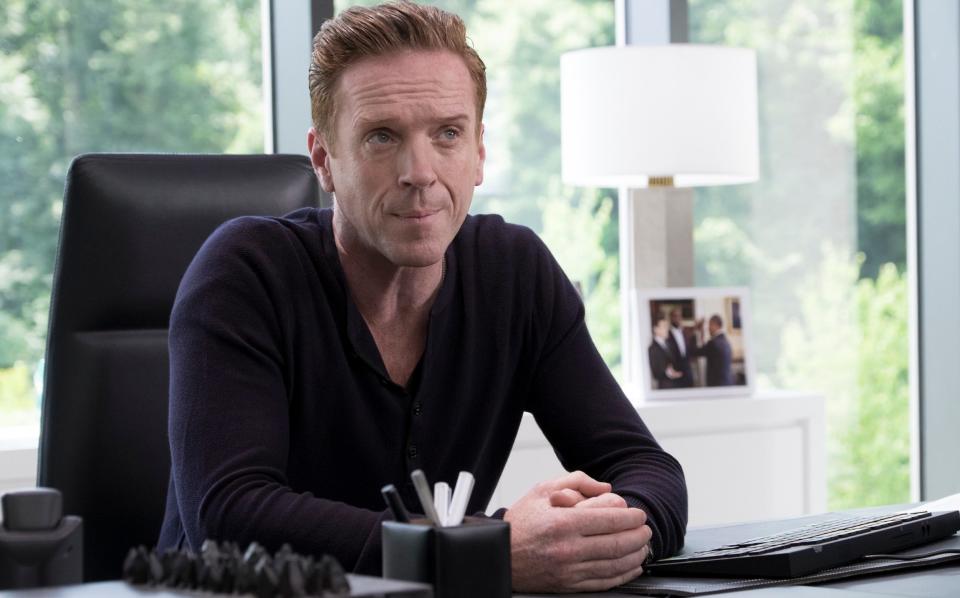Damian Lewis’s rock star reinvention: ‘I’m fully aware of how dangerous this is for me’

“Why doesn’t he stick to acting?!” says Damian Lewis, in a wry pantomime of outrage. The 52-year-old star of hit TV dramas from Band of Brothers to Billions, via Homeland and Wolf Hall, is anticipating the reaction to his boldest career move to date: on Friday, Lewis will release a debut album of his own songs.
“We’re notoriously bad at -changing lanes in this country,” he says. “I’m fully aware of how dangerous it is for me, tiptoeing into another area of the arts. It’s a bit like standing up on top of the parapet going, ‘Right, take your shots, everyone; throw s--- at me!’ ”
Released two years after Lewis’s wife, actress Helen McCrory, died of breast cancer, Mission Creep is a rootsy, bluesy, folky, rocky set of songs about love and life, in which his soulful high tenor voice flows with ease through a textured web of instrumentation. Recorded with a band drawn from Britain’s jazz scene (though by no means a jazz album) it is romantic, offbeat, witty, wise, very touching and unarguably accomplished.
“I said to everyone involved, ‘I am doing this for me, for fun, so let’s try and have some.’ ” Lewis self-financed the recording, but subsequently signed to major label Decca, a division of Universal Music. “It got big on me,” he jokes.
He compares his current state of mild anxiety to being “at the National Theatre on press night, critics sharpening their quills in the corner” – but recognises there is one profound difference. “In a play, you’re one of a group, so if it gets a hatchet job, everybody’s necks are on the block. This album is really all my doing: I wrote the songs, I’m performing them. So I should be at my most vulnerable.” And yet, he adds, “I don’t feel exposed, weirdly. There is a real authorship to it that I’m enjoying.”

Lewis has been performing music his whole life, from choirs, to bands, to strumming for money on the streets. “If I can claim to be anything,” he says, “it’s a busker.”
That might sound like a -modest claim for a man whose father was an insurance broker at Lloyd’s of London and whose maternal ancestors include a Lord Mayor and a royal doctor. Lewis grew up in St John’s Wood, north -London, before being sent to boarding school in East Sussex from the age of eight, then on to Eton, where he learned classical guitar and formed his first, short-lived band, the No Names. He recalls playing a cover of Just What I Needed by the Cars at a school assembly in front of 250 fellow pupils, accompanied for the entire performance by the loud, derisive laughter of a close friend. “It crushed me,” he says, as if he can still feel the embarrassment, -decades later.
Undeterred, after Eton, Lewis set off around Europe on a motorcycle, with a tent and an acoustic guitar, busking his way through France and Spain. “It was quite -solitary, but a lot of fun, on the road, in front of crowds in market squares.” The “money spinners” were his -covers of Bowie, the Beatles and the Stones, but “if you wanted to hear the Eagles, I’d give you an Eagles tune. If you wanted Lenny -Kravitz, Donovan, a bit of Status Quo – I was adaptable. I had a -medley of rock ’n’ roll that went through Eddie Cochran, the Everly Brothers, Elvis, Bill Haley. I listened to a lot of 1950s rock ’n’ roll as a teenager. There was nothing for me between that and synth pop.”

Yet the young Lewis did not -harbour dreams of being a rock star. He had already been bitten by the acting bug, and in 1990 enrolled at Guildhall School of Music and Drama, where his classmates included Ewan McGregor. “I was very focused on theatre, as were all my peers. Apart from Ewan, who brilliantly declared, ‘I want to be a movie star.’ ”
Lewis graduated from the -Guildhall in 1993, joined the RSC four years later, and made his screen breakthrough when -Steven Spielberg cast him in a -leading role as an American officer in World War II drama series Band of -Brothers in 2001. His knack for capturing a quietly intense kind of -masculinity has drawn -comparisons with Steve McQueen, whom Lewis portrayed in Quentin Tarantino’s 2019 film Once Upon a Time in Hollywood. Over two decades of starring roles, he has become one of the most admired British leading men of his generation.
Through it all, music retained a place in the background. “There’s always a piano in the house, and I sit and noodle, or pull out the -guitar when everyone’s in the mood.” Lewis has been known to put bands together for the wrap party at the end of a long shoot, serenading cast and crew with “classic cover band stuff: the Velvet Underground, -Primal Scream, a bit of the Clash”.

Then, a couple of years ago – long after he’d made a home in north London with McCrory and their two children, Manon and Gulliver – something changed: Lewis started writing songs. “There will be people who know my history,” he says, carefully. “They will know Helen, my wife, died two years ago. And I’ve written an album. So you don’t need to be Sherlock Holmes to work a few things out.”
We are talking in a plush recording studio near King’s Cross -station. Record company assistants flit discreetly about, and a photographer waits to shoot Lewis’s -portrait. He looks lean and sculpted, in tight jeans, T-shirt, and the kind of -patterned cardigan that only a man supremely confident in his own style could carry off. He has a piercing gaze and impeccable manners: softly spoken and drily amusing, he also has a fine line in self--deprecation. I suspect that, beneath the surface, he is conflicted about giving this interview. He has poured a lot into making his album, and wants to do his duty by promoting it, but there are some things he would rather not talk about.
Lewis met the brilliant McCrory – most recently acclaimed for her electrifying performance as steely matriarch Polly Gray in -Birmingham gangster drama Peaky Blinders – when they were both cast in a play at the Almeida -Theatre in 2003; they married four years later. In April 2021, McCrory died; she was 52 years old. Lewis has spoken eloquently, with humour, insight and love about his late wife and the overwhelming impact of everything they went through as a family but, understandably, does not wish to make that the focus of an interview publicising his music. Not least because, he points out, “It is not a grief album.”

Mission Creep is rather a deeply romantic collection of songs, poised between playful reminiscence (Down on the Bowery; Soho Tango), nostalgic yearning (Wanna Grow Old in Paris; Why) and a quality of despair given a strange frisson of optimism by jaunty contrapuntal musical settings (Hole in My Roof; Zaragoza). There are also zippy rockers (My Little One and Makin’ Plans) and a slyly cheerful portrait of deeply untrustworthy individuals (Never Judge a Man by His Umbrella) inspired by his recent role in espionage thriller A Spy Among Friends. At its centre is a vivid folk jazz piece called She Comes, addressing the -haunting presence of a departed loved one (“She comes as a blackbird, she comes as a fox / She sits at a window, she sings from a rock”) that builds to an explosive, exultant finale (“She’s the wind and the storm / What I sheltered from / She’s my joy, she’s my pain / And she rained on me”).
“It’s the first song I wrote,” Lewis tells me. “It is a complicated love letter, about ghosts. I -probably wrote it out when I was at my most raw.”
Our discussion turns to Nick Cave, a singer-songwriter who has mined a deep vein of grief in his recent albums, following the death of his teenage son Arthur in 2015. “I adore Nick Cave. He’s almost become a spokesperson for grief, to allow everyone else to grieve through his music,” says Lewis. “I hope he’s OK. But he’s taken on this almost messianic role and seems to be owning it in a quite magnificent way.”
Lewis’s album may have been created partly as a balm to a troubled soul, but the songs only sound sad if you view them through his personal history. He says he prefers to leave the lyrics to each song “a -little bit opaque” to “allow listeners to borrow from it in ways that relate to their own life and experience”.
He contrasts the experience of performing his own songs to playing a role on stage or screen. “As an actor, you are constantly asked to draw on your emotional self, and that can feel very exposing. But it’s not you, it’s the writer of that piece who is actually speaking directly from themselves. You are an interpreter. With this, there’s no -characterisation, it is just you. I’ve found myself thinking ‘Is it more enjoyable to inhabit a character in a parallel reality? Or is it more fun standing on stage as me?’ They are very different things. And I don’t have the answer yet.”
A standout track on the album is Makin’ Plans, a “12-bar roadhouse blues” that -energetically mines 1970s rock and boogie from T. Rex to Status Quo for a tale of a disastrous road trip. Delivered with black humour, it includes horrific imagery of a road accident. “I’ve had two motorbike crashes,” Lewis admits. “One of them I was very lucky to come out of. Right -outside Pentonville Prison on the Caledonian Road, I went straight into the windscreen of a car. Terrible, terrible, terrible crash. I woke up in the middle of the road a few minutes later. Had I not been wearing a closed helmet, I’d be very surprised if I was sitting here right now.”

The playful spirit of the song -disguises a serious underlying theme. “It’s about plans going awry,” says Lewis. “And, you know, I’ve had to adjust a few of my plans over the last couple of years.”
Not that he’s slowing down: Lewis has squeezed our interview into a break from filming a vampire comedy, The Radleys (based on the novel by Matt Haig), in which he takes dual roles, as both good and bad vampires. He is also returning to hit US TV show Billions as rogue hedge fund manager Bobby Axelrod, after a two-season absence. On the personal front, he has been romantically linked with the singer Alison Mosshart, frontwoman of cult US garage rock duo the Kills.
While working as an actor, he notes, “I’m quite well looked after. They don’t really let actors do -anything, because they think we’ll cock it up, you know. So you’re driven in cars from one place to the next and you’re delivered to make-up and then on to set and you’re put up in decent hotels, because they’re terrified they’re going to lose you somewhere along the way.”

On the musical side, his role is more hands-on. “This is all -homemade. It’s quite cut and paste. There’s no production company. I’ve got to hire the band, I’ve got a budget, people want answers from me directly. It has been really fun.”
He pauses. “There’s no question that parts of this album reflect the place I’ve been in over the last five or six years. No question. But I’ve written some music which I think is worthwhile, I’ve enjoyed -playing it with incredible musicians, it’s been a big learning process for all of us, and it’s really an accident that I’ve ended up with a record like this.” He smiles, hopefully. “A really happy accident.”
Mission Creep is released by Decca on Friday. For details and live tour dates, see: damianlewismusic.com
